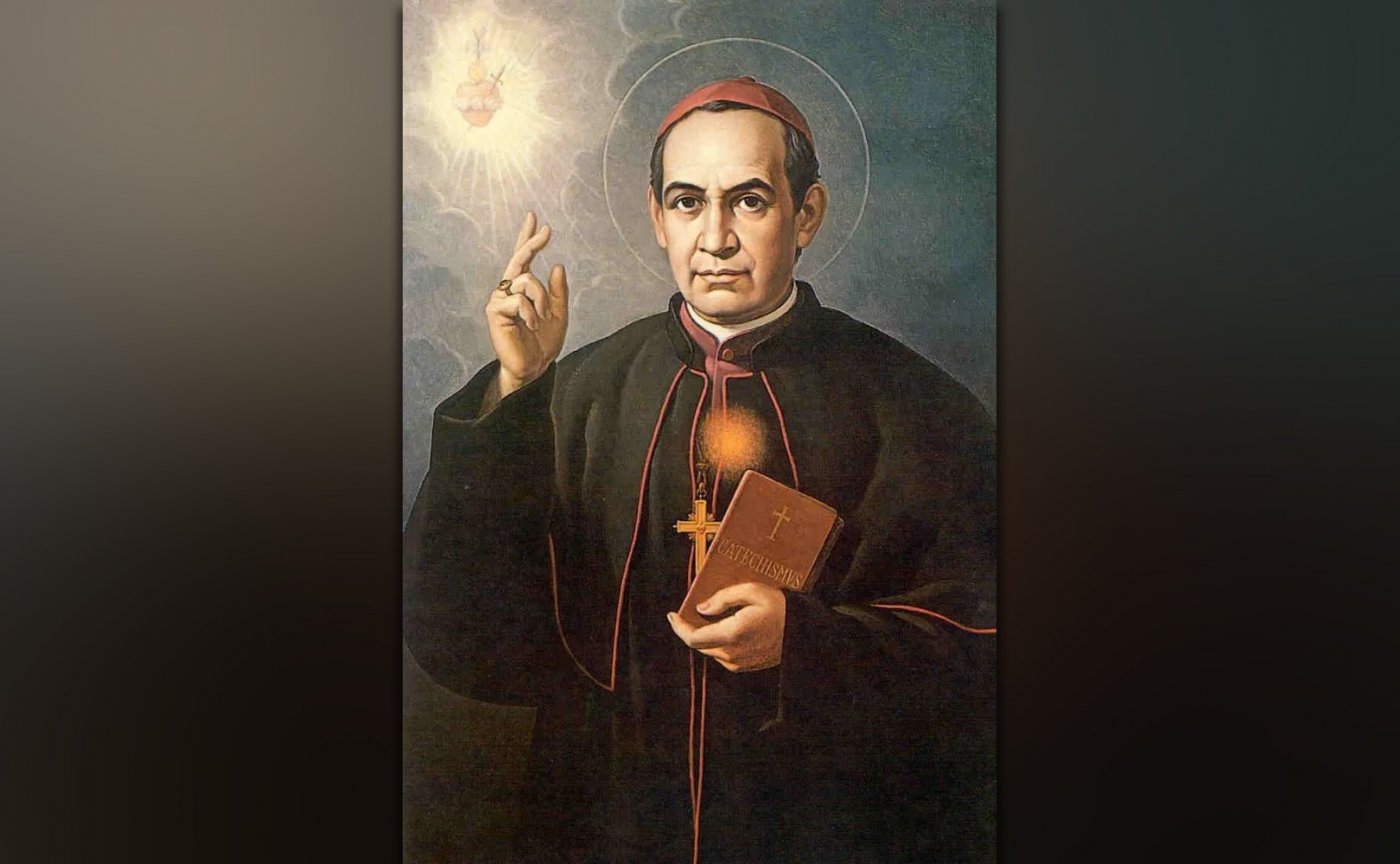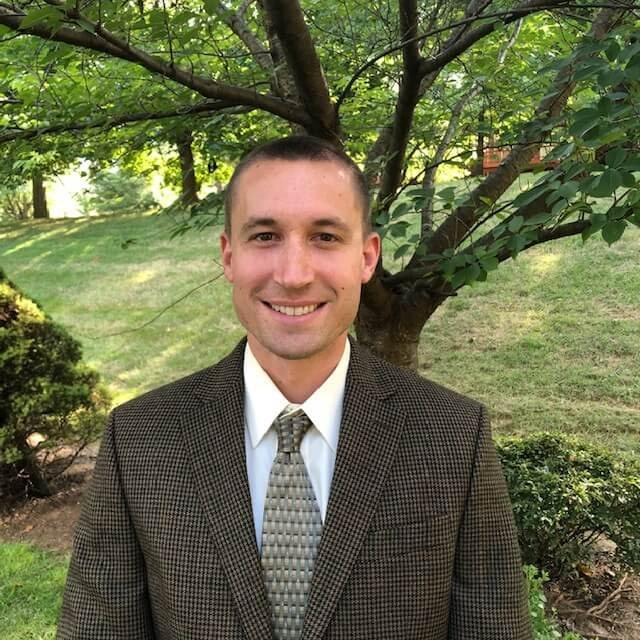« on: November 04, 2019, 08:18:02 PM »
 0
0
 0
0
From 1Peter5:
LinkSt. Anthony Mary Claret: How Easily People Commit Mortal Sins St. Anthony Mary Claret is often depicted in paintings as having a glowing substance within his breast. This is because on May 16, 1862, Our Lord gave St. Anthony the extraordinary privilege of retaining the Sacramental Species perpetually within him. St. Anthony writes in his autobiography that he considered omitting this remarkable detail about himself from the book, but the Blessed Virgin told him not to do so. It is surprising that a saint who received such a marvelous sign of God’s predilection doesn’t have a larger cult. Perhaps a significant reason for his current lack of one is that he put a great emphasis on certain Catholic truths that are not welcome and misrepresented in many modern parishes.One of the least preached on dogmas of the Faith in our time is that all those who die in a state of mortal sin will be condemned to the eternal torments of Hell. St. Anthony wrote about this dogma repeatedly in his autobiography, attributing the inspiration for his exhausting labors to his desire to save souls from such a fate.St. Anthony did not think it was difficult or rare for people to commit mortal sins. He wrote, “Faith teaches that the pains of Hell are eternal, and it also warns us that one single mortal sin suffices to condemn a soul forever because of the infinite malice by which it offends an infinite God. With these most positive principles in mind, how can I remain indifferent when I see the ease with which sins are committed, sins that occur as frequently as one takes a glass of water, sins and offenses that are perpetrated out of levity or diversion? How can I rest when so many are to be seen living continually in mortal sin?”He expressed his incredulity at how many of his contemporary priests and lay faithful would not warn sinners about the frightening path they were on: “Neither can I understand why other priests who believe the selfsame truths as I do, as we all must do, do not preach or exhort their flock so that they might avoid this unbearable eternity of Hell. It is still a source of wonder to me how the laity — those men and women blessed with the Faith — do not give warning to those who need it.”The three conditions required for a sin to be mortal are presently being explained in a sense that is completely foreign to the sense in which the conditions were traditionally understood. The “full knowledge” requirement, for example, is currently thought (wrongly) to mean that if someone doesn’t know that the act that he is committing constitutes grave matter, then they won’t be held culpable for committing a mortal sin.In the Baltimore Catechism No. 4, the exact words “full knowledge” do not appear in the section on mortal sin, but three conditions are listed. “Sufficient reflection” would be the condition listed in the Catechism that most closely corresponds to full knowledge. The Catechism says that to have sufficient reflection, “you must know what you are doing at the time you do it. For example, suppose while you stole a diamond pin you thought you were stealing a pin with a small piece of glass, of little value. You would not have had sufficient reflection and would not have committed a mortal sin till you found out that what you had stolen was a valuable diamond; if you continued to keep it after learning your mistake, you would surely commit a mortal sin.” If a person stole a diamond pin knowing all the while that they were stealing a pricey item, then they would be guilty of a mortal sin regardless of whether or not they possessed full knowledge that stealing things of considerable value constitutes a grave offense.St. Thomas raised the question in his Summa as to whether or not a mortal sin can ever become venial (I-II:88:6). The second objection and his reply to it are a must-read for anyone who wants to have an informed conscience on the matter under discussion:
St. Anthony Mary Claret is often depicted in paintings as having a glowing substance within his breast. This is because on May 16, 1862, Our Lord gave St. Anthony the extraordinary privilege of retaining the Sacramental Species perpetually within him. St. Anthony writes in his autobiography that he considered omitting this remarkable detail about himself from the book, but the Blessed Virgin told him not to do so. It is surprising that a saint who received such a marvelous sign of God’s predilection doesn’t have a larger cult. Perhaps a significant reason for his current lack of one is that he put a great emphasis on certain Catholic truths that are not welcome and misrepresented in many modern parishes.One of the least preached on dogmas of the Faith in our time is that all those who die in a state of mortal sin will be condemned to the eternal torments of Hell. St. Anthony wrote about this dogma repeatedly in his autobiography, attributing the inspiration for his exhausting labors to his desire to save souls from such a fate.St. Anthony did not think it was difficult or rare for people to commit mortal sins. He wrote, “Faith teaches that the pains of Hell are eternal, and it also warns us that one single mortal sin suffices to condemn a soul forever because of the infinite malice by which it offends an infinite God. With these most positive principles in mind, how can I remain indifferent when I see the ease with which sins are committed, sins that occur as frequently as one takes a glass of water, sins and offenses that are perpetrated out of levity or diversion? How can I rest when so many are to be seen living continually in mortal sin?”He expressed his incredulity at how many of his contemporary priests and lay faithful would not warn sinners about the frightening path they were on: “Neither can I understand why other priests who believe the selfsame truths as I do, as we all must do, do not preach or exhort their flock so that they might avoid this unbearable eternity of Hell. It is still a source of wonder to me how the laity — those men and women blessed with the Faith — do not give warning to those who need it.”The three conditions required for a sin to be mortal are presently being explained in a sense that is completely foreign to the sense in which the conditions were traditionally understood. The “full knowledge” requirement, for example, is currently thought (wrongly) to mean that if someone doesn’t know that the act that he is committing constitutes grave matter, then they won’t be held culpable for committing a mortal sin.In the Baltimore Catechism No. 4, the exact words “full knowledge” do not appear in the section on mortal sin, but three conditions are listed. “Sufficient reflection” would be the condition listed in the Catechism that most closely corresponds to full knowledge. The Catechism says that to have sufficient reflection, “you must know what you are doing at the time you do it. For example, suppose while you stole a diamond pin you thought you were stealing a pin with a small piece of glass, of little value. You would not have had sufficient reflection and would not have committed a mortal sin till you found out that what you had stolen was a valuable diamond; if you continued to keep it after learning your mistake, you would surely commit a mortal sin.” If a person stole a diamond pin knowing all the while that they were stealing a pricey item, then they would be guilty of a mortal sin regardless of whether or not they possessed full knowledge that stealing things of considerable value constitutes a grave offense.St. Thomas raised the question in his Summa as to whether or not a mortal sin can ever become venial (I-II:88:6). The second objection and his reply to it are a must-read for anyone who wants to have an informed conscience on the matter under discussion:Objection 2, “Now it may happen that a person in committing a sin generically mortal, loves a creature less than God; for instance, if anyone being ignorant that simple fornication is a mortal sin, and contrary to the love of God, commits the sin of fornication, yet so as to be ready, for the love of God, to refrain from that sin if he knew that by committing it he was acting counter to the love of God. Therefore his will be a venial sin; and accordingly a mortal sin can become venial.”
Reply to Objection 2, “If the ignorance be such as to excuse sin altogether, as the ignorance of a madman or an imbecile, then he that commits fornication in a state of such ignorance, commits no sin either mortal or venial. But if the ignorance be not invincible, then the ignorance itself is a sin, and contains within itself the lack of the love of God, in so far as a man neglects to learn those things whereby he can safeguard himself in the love of God.”
When Our Lord said to the scribes and Pharisees that “they that are well need not a physician,” and that He “came not to call the just, but sinners,” many commentators say Our Lord did not mean to say the scribes and Pharisees were just and in no need of healing. What Our Lord did mean to say was that He did not come to save those who presume of their own justice and think they have no need of a savior. We cannot cooperate in our own salvation if we think we don’t need Christ. Similarly, we cannot cooperate in the salvation of our neighbors if, because of false doctrines that undermine moral responsibility, we presume our neighbors to be already just despite all evidence to the contrary.St. Anthony Mary Claret’s realistic view of the state of mankind enabled him to help many sick persons save their souls. It was in pitying their poor condition that St. Anthony found the impetus to pray so ardently, fast, hear confessions for long periods of time, preach, distribute edifying booklets, and perform countless other works of mercy. John Henderson
John HendersonJohn Henderson is a graduate of the Catholic University of America currently working as an educator in the state of Maryland. He has been going to the traditional Latin Mass regularly for six years and is zealous to tell others of the treasures of the Catholic religion.

Logged
"Some preachers will keep silence about the truth, and others will trample it underfoot and deny it. Sanctity of life will be held in derision even by those who outwardly profess it, for in those days Our Lord Jesus Christ will send them not a true Pastor but a destroyer." St. Francis of Assisi